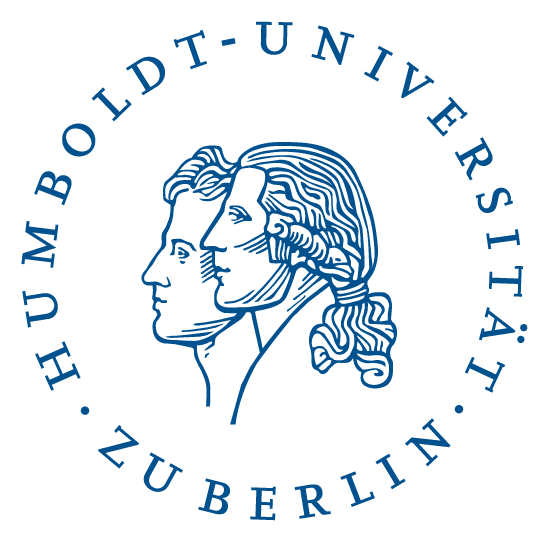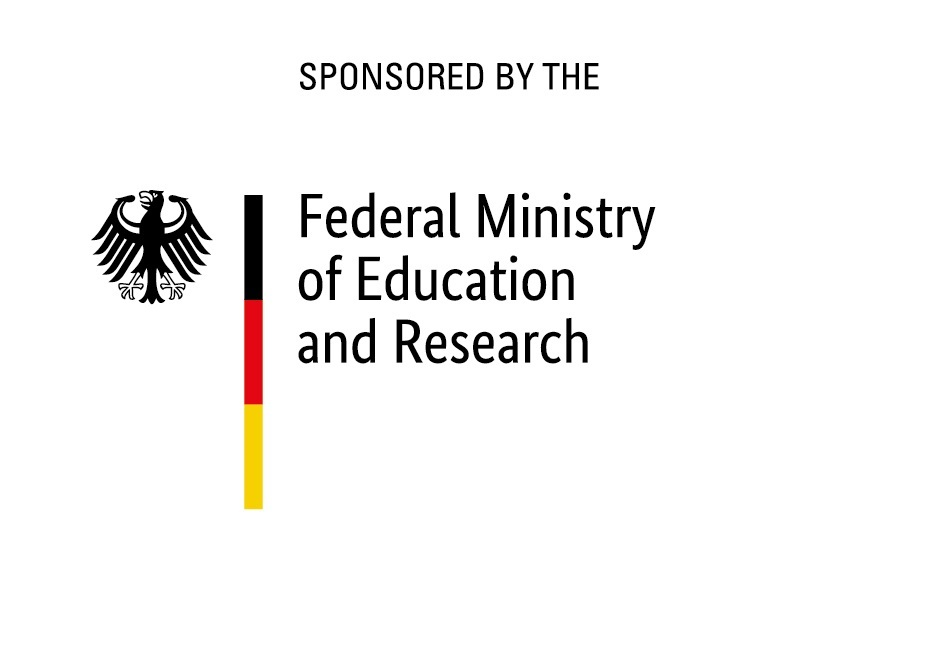 |
 |
  |
Motivation
CREW is a joint project of PIK's Research Domain 'Sustainable Solutions', the Chair for Public and Health Economics of Technische Universität Berlin (Prof. Marco Runkel), and the Institute for Microeconomic Theory at the Humboldt-Universität Berlin (Prof. Roland Strausz). It is financed for three years by the German Federal Ministry of Education and Research (BMBF) under its program Research for Sustainable Development as part of the 'Economics of Climate Change' funding priority and has officially started on 1 September 2011.
CREW addresses a series of highly relevant questions in the field of international climate policy, e.g. why have countries so far failed to reach a global and salient agreement on climate change; how can a limited number of countries (a 'climate coalition') effectively implement unilateral climate policy; and which policy instruments can help to facilitate international cooperation? A considerable range of methods will be employed to address these questions, including game theory, trade theory, mechanism design, numerical modeling, and institutional analysis.
Gaps in the Current State of Research
One limitation of the current research on the appropriate characterization of the climate game consists of its methodological focus on mostly qualitative reasoning or stylized theoretical models. In light of this, our goal is to put this reasoning and the associated numerical modeling on a rigorous foundation. What – in our view – is missing is a (i) review and numerical assessment of the latest hypotheses about the structure of the climate game as a global public goods problem, and (ii) a critical analysis of alternative hypotheses that have so far not been investigated in a formal manner.
Second, due to their focus on the international dimension of climate policy, a limiting feature of most game-theoretic analyses is their simplifying assumption of aggregated countries as the only strategic players in the game. In questions of climate policy, especially in the present second-best context of unilateral regulation by a club of environmental leaders, markets’ reactions to policy can be counterintuitive and non-trivial, and should thus be included in the analysis. Carbon leakage through shifts in trade patterns or price reactions on energy markets constitutes the most prominent case in point.
Third, although the design of effective and incentive compatible transfer schemes has been identified as a particularly promising option, which seems natural when considering that due to the existing heterogeneity of countries the benefits from cooperation on climate change will generally be distributed unevenly, the existing literature is quite limited in its scope, since it either studies fixed transfer rules or restricts “optimal” transfers to ex-post shifts in social welfare.
Research Activities and Work Program
Setting out with the observation that a global regime of climate change mitigation seems far away, this project focuses on three major research questions: (1) Why has cooperation failed so far?; (2) How can we address the problem of climate change in a second-best world without global cooperation? and (3) How can we facilitate global cooperation so that one may move from a second-best world without global cooperation to a first-best world with cooperation?
Accordingly, our research is organized in three modules, which build on each other and contain two or three separate work packages (WP) each, as described in the following.
Module I: Why has cooperation failed so far?
- WP I-1: The climate game as a global public goods problem: analyzing structures, identifying parameters
- WP I-2: Beyond the global public good view: alternative approaches for characterizing the climate game
Module II: How to address the problem of climate change in a second-best world without global cooperation?
- WP II-1: Second-best policies under international trade
- WP II-2: Second-best policies under international capital mobility
- WP II-3: Robust second-best policies under unilateral regulation
Module III: How to facilitate global cooperation so that one may move from a second-best world without global cooperation to a first-best world with cooperation?
- WP III-1: Treaty-mechanisms to increase participation in a global agreement
- WP III-2: Strategic unilateral action for inducing global cooperation
Project Advisory Board
The CREW project is supported by an advisory board consisting of three distinguished representatives from academia, climate policy and business. Its role is to observe the progress of the research work and to help identifying those directions of research which appear most promising and realistic in terms of policy relevance. The members of the advisory board are:
- Prof. Dr. Sjak Smulders, Professor of Economics, Tilburg University
- Dr. Ger Klaassen, European Commission, Directorate General Climate Action
- Dr. Joachim Faber, Allianz SE
Project Results
Selected Publications
forthcoming
- Franks, M., O. Edenhofer, K. Lessmann: Why finance ministers favor carbon taxes, even if they do not take climate change into account. Discussion Paper 2015-67, Harvard Project on Climate Agreements, Belfer Center for Science and International Affairs, and accepted for publication in Environmental and Resource Economics.
- Robert C. Schmidt and Roland Strausz: On the timing of climate agreements, forthcoming in Environmental and Resource Economics, DOI 10.1007/s10640-014-9828-2
2015
- Schmidt, R. C. (2015). A balanced-efforts approach for climate cooperation. Nature Climate Change, 5(1), 10-12.
- Helm, C. und R. C. Schmidt (2015). Climate cooperation with technology investments and border carbon adjustment. European Economic Review 75, 112-130.
- Lessmann, K., Kornek, U., Bosetti, V., Dellink, R., Emmerling, J., Eyckmans, J., ... & Yang, Z. (2015). The Stability and Effectiveness of Climate Coalitions. Environmental and Resource Economics, 1-26.
- Antoniou, F. und N. Tsakiris (2015). On the Informational Superiority of Quantities over Prices in the Presence of an Externality: a nonparametric model. Environmental and Resource Economics, 1-24.
2014
- Edenhofer, O., C. Flachsland, M. Jakob und K. Lessmann (2014). The Atmosphere as a Global Commons – Challenges for International Cooperation and Governance, In: Oxford Handbook of the Macroeconomics of Global Warming, Oxford University Press.
- Antoniou, F., Hatzipanayotou, P., & Koundouri, P. (2014). Tradable permits vs ecological dumping when governments act non-cooperatively. Oxford Economic Papers, 66(1), 188-208.
- Eichner, T., & Runkel, M. (2014). Subsidizing renewable energy under capital mobility. Journal of Public Economics, 117, 50-59.
- Schmidt, R.C. and J. Heitzig (2014) Carbon leakage: Grandfathering as an incentive device to avert firm relocation. Journal of Environmental Economics and Management, vol. 67, issue 2, pages 209-223.
- Lessmann, K., R. Marschinski, M. Finus, U. Kornek, O. Edenhofer (2014). Emissions trading with non-signatories in a climate agreement – An analysis of coalition stability. The Manchester School 82(S2), 82-109.
- Edenhofer, O., C. Flachsland, M. Jakob, K. Lessmann (2014): The Atmosphere as a Global Commons – Challenges for International Cooperation and Governance. In: Semmler, W., L. Bernard (eds.): The Handbook on the Macroeconomics of Climate Change. Oxford University Press.
2013
- Jakob, M., & Marschinski, R. (2013). Interpreting trade-related CO2 emission transfers. Nature Climate Change, 3(1), 19-23
2012
- Antoniou, F., P. Hatzipanayotou and P. Koundouri (2012) Tradable permits vs ecological dumping when governments act non-cooperatively, Oxford Economic Papers, published online: November 2012.
- Jakob, M., R. Marschinski (2012): Interpreting trade-related CO2 emission transfers, Nature Climate Change. 3(1):19-23.
- Jakob, M., K. Lessmann (2012): Signaling in International Environmental Agreements: The Case of Early and Delayed Action. International Environmental Agreements: Policy, Law, and Economics 12(4): 309-325.
Selected Working Papers
- Antoniou, F. and E. Kyriakopoulou (2015): On The Strategic Effect of International Permits Trading on Local Pollution. University of Gothenburg Working Papers in Economics No 610.
- Antoniou, F. und R. Strausz (2015). Feed-in Tariffs, Taxation, and Inefficient Entry, CESifo Working Paper No. 4788.
- Schmidt, R. C. und Pollrich (2014): Unobservable investments, limited commitment, and the curse of firm relocation, BDPEMS working paper series 2014-04.
- Schwerhoff, G. und M. Franks (2015). Optimal Environmental Taxes With Capital Mobility. Working paper presented at EAERE 2015.
- Siegmeier, J., Mattauch, L., Franks, M., Klenert, D., Schultes, A., & Edenhofer, O. A public finance perspective on climate policy: Six interactions that may enhance welfare, FEEM Nota di Lavoro No. 31.2015.
Project Events
In general, the working program of CREW envisages three annual project meetings.
The Kick-Off meeting took place on 26 January 2011 in Potsdam. This is the agenda.
The 2nd internal project meeting took place on 14 June 2012 at HU.
The 3rd internal project meeting took place on 20 September 2012 at TU Berlin.
The 4th internal project meeting took place on on 20 February 2013 at PIK.
The 5th internal project meeting took place on 3 June 2013 at PIK.
The 6th internal project meeting took place on 11 November 2013 at HU Berlin.
The 7th internal project meeting took place on 6 March 2014 at TU Berlin.
The 8th internal project meeting took place on 5 September 2014 at HU Berlin.
Symposium
International climate policy may be at a crossroads: the UNFCCC process that has aimed for binding commitments to ambitious emission reduction throughout the world has only made slow progress, and it seems unlikely that the world will see a global agreement on emission reductions in 2015. This has given rise to a bottom up approach of nationally determined contributions. While this bottom up approach has greatly enlivened the climate negotiations, it is difficult to assess the success of this process of independent contributions in terms of emissions reduced, and the scope of this process to achieve the goal of limiting temperature change to 2C. There are hence risks associated with both routes of international climate policy: the route of binding emission
reductions as a policy goal may be impossible to achieve within a useful time horizon. And the second route of relying on a system of contributions may not have the potential to substantially reduce emissions.
Against this backdrop, the CREW Syposium "Options for Unilateral Action and stronger Cooperation" was held on March 23-24 2015 at Potsdam. Find the agenda of the symposium here.
Relevance of Expected Results
In view of the applied character of its research agenda, the CREW project is expected to produce results with high relevance for policy making. For instance, the work to be carried out within Module II can contribute to the current vivid debate on possible measures for flanking unilateral climate policy, especially in view of the EU’s commitment to pursue climate policy and continue the EU Emissions Trading System (ETS) independently from how global climate policy advances. A prominent example is the ongoing controversial discussion of border tax adjustment (BTA) or similar trade-related measures aimed at ‘leveling the carbon playing field’, which will be analyzed in Module II. Likewise, the work envisaged for Module III would add to the current debate on the role of renewable energy policy in the context of climate change (e.g. feed-in tariff vs. green quotas), which has recently received significant attention in the public.
Project Coordination & Contact
Dr. Kai Lessmann
Potsdam Institute for Climate Impact Research
P.O. Box 60 12 03
14412 Potsdam, Germany
Project Partners and Personnel
At Potsdam Institute for Climate Impact Research (PIK):
At Humboldt-Universität Berlin:
At Technische Universität Berlin:





